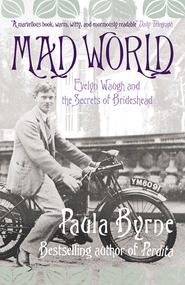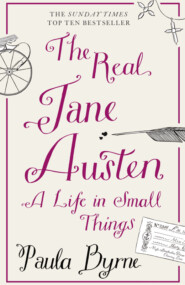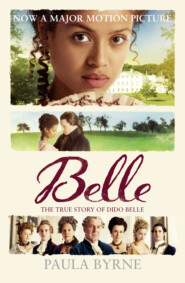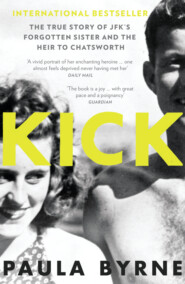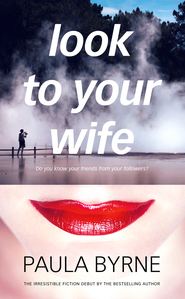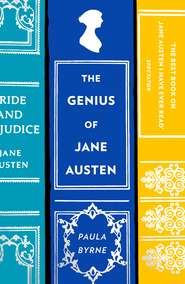По всем вопросам обращайтесь на: info@litportal.ru
(©) 2003-2024.
✖
Perdita: The Life of Mary Robinson
Настройки чтения
Размер шрифта
Высота строк
Поля
Mary always felt torn between pride in her father’s achievements and resentment at his abandonment of the family. Her ambivalence can be seen in the way that she emphasizes his dual nationality. When she speaks of his bold and restless spirit, and his love of sea life, she ascribes this to his status as an American seafarer, yet at other times he is that stalwart of the community, a ‘British merchant’. Mary blamed her father’s mistress for bewitching his senses at a time when he was isolated in America, away from his wife and family. She herself learnt a valuable lesson at a particularly vulnerable age: loss of fortune and position swiftly loses friends. Dropped by the people who had been happy to take advantage of their former prosperity, the family were left bereft.
A year later, Hester, Mary, and the surviving younger son, George, were summoned to London to their father’s lodgings in fashionable Spring Gardens, near the famous Vauxhall pleasure gardens. Hester was unsure as to whether to expect ‘the freezing scorn, or the contrite glances, of either an estranged or repentant husband’.
(#litres_trial_promo) His ‘coldly civil’ letter had ‘requested particularly’ that she should bring the children with her: this ought to have been enough to make her realize that the meeting would be a farewell, not a reunion.
When they met, her father was in tears and could barely speak. The embrace he gave his wife was ‘cold’ – and it was the last she was to receive from him. Once the initial recriminations had blown over, Nicholas set out his plans. The children were to be placed at schools in London, while his wife was to board with a respectable clergyman’s family. He would be returning across the Atlantic. And, indeed, the following year he launched a new and much more successful venture in Labrador, this time employing experienced Canadian fishermen.
The next stage of Mary’s education was to be crucial to her vocation as a writer. She was sent to a school in Chelsea and came under the tuition of a brilliant and accomplished woman, Meribah Lorrington. Lorrington was highly unconventional in that she had been given a masculine education by her schoolteacher father, and was as well versed in the classics as she was in the modern languages, arithmetic, and astronomy. She was the living embodiment of a character type that Mary would fictionalize in several of her novels, the female who benefits from the education usually reserved for boys.
Mary worshipped her teacher, elevating her influence far above that of the More sisters: ‘All that I ever learned I acquired from this extraordinary woman.’
(#litres_trial_promo) The classical education she was given in Chelsea meant that in the long term her writings would demand a respect that was not often granted to female authors. There is an especially striking breadth of classical allusion in her feminist treatise A Letter to the Women of England, on the Injustice of Mental Subordination.
Pupil and teacher became close companions, even sharing the same bedroom. Mary dates her love for books from this relationship: ‘I applied rigidly to study, and acquired a taste for books, which has never, from that time, deserted me.’
(#litres_trial_promo) The women read to one another and Mary began composing verses, some of which were included in her first collection of poems, which she was to publish from debtors’ prison. In Mary’s narrative of her own life, her intellect first blossoms in an all-female community, with Meribah and half a dozen fellow pupils (among whom Mary is clearly singled out as the favourite). Far from aligning herself with the highly respectable Hannah More, she chooses to identify Lorrington as her mentor – and then goes on to reveal that she was an incorrigible drunkard.
Mary often complained of the contemptuous treatment that she received from her own sex, but she paid the utmost respect to the women who inspired and supported her, especially in her writing career. As Meribah Lorrington was credited for encouraging her juvenile writing, so Mary’s first literary patron was another woman of dubious reputation, Georgiana Duchess of Devonshire. Mary adored both women, though Meribah was a hopeless alcoholic and Georgiana an equally addicted gambler.
Mary accepted the explanation that Meribah gave for her addiction to drink: she was grief-stricken by the death of her husband and was the victim of a bullying, disciplinarian father, a stern-speaking silver-bearded Anabaptist who wandered round the girls’ schoolroom wearing nothing but a loose flowing robe which made him look like a necromancer. Mary noticed that the presence of the father always made the daughter reach for the bottle.
Meribah Lorrington’s ‘state of confirmed intoxication’ even during teaching hours led to the demise of the Chelsea school. Some time later, Mary discovered a drunken beggar woman at dusk in the street. She gave her money, then, to her surprise, the woman said, ‘Sweet girl, you are still the angel I ever knew you.’ Their eyes met and Mary was horrified to discover that it was her old teacher. She took her home, gave her fresh clothes, and asked her where she lived. Meribah refused to say, but promised she would call again in a few days. She never did. Years later, Mary learned that her brilliant but flawed mentor had died a drunk in the Chelsea workhouse.
Mary describes herself in her Memoirs as well developed for her age, tall and slender. At the age of 10, she says, she looked 13. During her fourteen-month period boarding at the Lorrington Academy, she visited her mother every Sunday. One afternoon over tea she had a marriage proposal from a friend of her father’s. Hester was a little surprised; she asked her visitor how old he thought her daughter was. ‘About sixteen,’ he replied. Hester informed him that Mary was still only 12. He found this hard to believe, given that she was such a well-developed girl both physically and intellectually, but he was prepared to wait – he was a captain in the Navy, just off on a two-year voyage. He had great prospects for the future and hoped that Mary might still be unattached on his return. Just a few months later he perished at sea.
In this version of Mary’s first encounter with male desire, she is the innocent: a child, albeit with the body of a woman. The first ‘biography’ of her, published at the height of her public fame in 1784, tells a very different story. The Memoirs of Perdita is a source that must be treated with great caution, since – as will be seen – it was written with both a political and a pornographic agenda. Nevertheless, there is no doubt that the book’s anonymous author had a very well-informed source. The ‘editor’ claimed in his introduction that ‘the circumstances of her life were communicated by one who has for several years been her confidant, and to whose pen she has been indebted for much news paper panegyric’ – a description that very much suggests Henry Bate of the Morning Herald, a key figure in Mary’s story. According to the ‘editor’ of The Memoirs of Perdita, ‘the following history may with propriety be said to be dictated by herself: many of the mere private transactions were indisputably furnished by her; nor could they possibly originate from any other source’.
(#litres_trial_promo) In some instances this is true: The Memoirs of Perdita published personal information about Mary’s life that was not previously in the public domain. In other instances, however, these supposed memoirs can safely be assumed to offer nothing more than malicious fantasy.
According to The Memoirs of Perdita, Mary’s first love affair occurred soon after the Darbys moved to London. Her father supposedly brought home a handsome young midshipman called Henry, who was allowed ‘private interviews’ and ‘little rambles’ with Mary. They went boating together on the Thames. On one occasion, they stopped for refreshments at Richmond. The only room the landlord had available in which to serve them with a glass of wine and a biscuit happened to be a bedchamber – which had crimson curtains that matched the ‘natural blush’ to which Mary was excited by the sight of the bed. The young midshipman duly took her hand and sat her with him on the white counterpane. ‘Perdita’s blushes returned – and Henry kissed them away – She fell into his arms – then sunk down together on the bed. – The irresistible impulse of nature, in a moment carried them into those regions of ecstatic bliss, where sense and thought lie dissolved in the rapture of mutual enjoyment.’
(#litres_trial_promo)
The affair supposedly lasted for some time, until the ‘jovial tar’ was summoned back to his ship, never to be seen again. In all probability, ‘Henry’ is pure invention, perhaps spun at second hand from some passing remark about the sailor’s proposal. After all, given that Nicholas Darby was estranged from his family, he was not there to introduce a midshipman into the household. But it would be unwise to dismiss out of hand the possibility that the young Mary – steeped as she was in poetry and romance – might have had some kind of sexual awakening in her early teens.
Mary was moved to a more orthodox boarding school in Battersea, run by a less colourful but nevertheless ‘lively, sensible and accomplished woman’ named Mrs Leigh.
(#litres_trial_promo) Nicholas Darby then stopped sending money for his children’s education. The resolute Hester took matters into her own hands and set up her own dame school in Little Chelsea. The teenage Mary became a teacher of English language, responsible for prose and verse compositions during the week and the reading of ‘sacred and moral lessons, on saints’-days and Sunday evenings’.
(#litres_trial_promo) Readers of her Memoirs would have been at best amused at the idea of one of the most notorious women of the age presenting herself as a teacher of morals and religion. Mary also had responsibility for supervising the pupils’ wardrobes, and making sure that they were properly dressed and undressed by the servants.
In 1770, Nicholas Darby ran into more problems. Just as he had a thousand pounds’ worth of seal skins ready for market, a British military officer arrived at his Labrador fishery and confiscated all his produce and tackle on the grounds that he was illegally employing Frenchmen and using French rather than British equipment. He was left marooned. He eventually made it back to London and asked the Board of Trade for compensation, claiming that he did not know that his Canadian crew were actually French subjects. The Board of Trade passed the buck, saying it had no jurisdiction in the case. Nicholas had a moral victory when the Court of King’s Bench awarded him £650 damages against the Lieutenant who had seized the goods, but the money was uncollectible. In the circumstances, one might have expected him to be grateful for his estranged wife’s initiative in establishing a school. But he was a proud man: ‘he considered his name as disgraced, his conjugal reputation tarnished, by the public mode which his wife had adopted for revealing to the world her unprotected situation’.
(#litres_trial_promo) He lived openly with his mistress, but could not abide seeing his wife publicly revealed as someone akin to an impoverished widow or spinster. He demanded that the school be closed immediately. It had lasted for less than a year.
Hester and her children moved to Marylebone. Like Chelsea, this was an expanding village on the edge of London, but it had a less rural feel and was fast being recognized as an integral part of the metropolis. Mary reverted from teacher to pupil, finishing her education at Oxford House, situated near the top of Marylebone High Street, bordering on Marylebone Gardens. Nicholas Darby and his mistress Elenor settled in the more fashionable and gentrified Green Street, off Grosvenor Square in Mayfair, a district that was becoming increasingly popular with merchants and rich shopkeepers as well as the gentry.
Mary must have been acutely conscious of the differences in lifestyle between her mother and her father. She sometimes accompanied her father on walks in the fields nearby, where he confessed that he rather regretted his ‘fatal attachment’ to his mistress – they had now been together so long and been through so much that it was impossible to dissolve the relationship. On one of their walks, they called on the Earl of Northington, a handsome young rake and politician, whose father had been one of the sponsors of Darby’s Labrador schemes. They were very well received, with Mary being presented as the goddaughter of the older Northington (now deceased). In later years, she did not deny rumours that she might have been the old Lord’s illegitimate daughter. The young Lord, meanwhile, treated her with ‘the most flattering and gratifying civility’.
(#litres_trial_promo)
When Nicholas returned to America, Hester moved her children to Southampton Buildings in Chancery Lane. This was lawyers’ territory, backing onto Lincoln’s Inn. She had placed herself under the protection of Samuel Cox, a lawyer. Perhaps she had applied to him for legal help after the separation from Nicholas became final. Being ‘under the protection’ of a man was usually code for sexual involvement, so it may have been more than a professional relationship.
It was during her time at Oxford House that Mary was drawn towards the stage. The governess, Mrs Hervey, spotted her talent for ‘dramatic exhibitions’, and persuaded Hester to let her daughter try for the stage, despite the fact that it was not considered to be a respectable career. Hester was persuaded that there were actresses who ‘preserved an unspotted fame’. Nicholas obviously had his doubts. Upon setting off on his new overseas adventure, he left his wife with a chilling injunction to ‘Take care that no dishonour falls upon my daughter. If she is not safe at my return I will annihilate you.’
(#litres_trial_promo)
The school’s dancing master was also ballet master at the Theatre Royal Covent Garden. Through him, Mary was introduced to an actor called Thomas Hull, who was impressed by her recitation of lines from Nicholas Rowe’s tragedy Jane Shore of 1714. But nothing came of the audition. Mary did not despair and she was rewarded with a much greater opportunity. Her mother’s protector Samuel Cox knew Dr Samuel Johnson and that was enough to open the door of Johnson’s old pupil and friend, David Garrick.
What was Mary Darby like at the time that she met Garrick? Though she may have been a plain child with dark swarthy looks, she had become a very beautiful teenager. She had curly, dark auburn hair and soft blue eyes that were to enchant men from the Prince of Wales to Samuel Taylor Coleridge. She had dimples in her cheeks. But there was always an elusive quality to her beauty. Sir Joshua Reynolds’s pupil, James Northcote, remarked that even his master’s portraits of her were failures because ‘the extreme beauty’ of her was ‘quite beyond his power’.
(#litres_trial_promo)
(#ulink_5a98f249-cf28-537e-b3d3-c559c4ef7d9c)See Appendix for the uncertainty over the year of Mary’s birth.
CHAPTER 2 A Young Lady’s Entrance into the World (#ulink_a0601865-44c9-576d-ba21-5450db7d4a36)
As London is the great emporium of commerce, it is also the centre of attraction for the full exercise of talents, and the liberal display of all that can embellish the arts and sciences.
Mary Robinson, ‘Present State of the Manners, Society, etc.
etc. of the Metropolis of England’
London was like nowhere else in the world. Bigger than any other city in Europe, with a population more than ten times that of Bristol, it was a place of extremes. Riches and squalor, grandeur and wretchedness, appeared cheek-by-jowl. This was an era of unprecedented consumerism: for companionship and entertainment there were coffee houses, taverns, brothels, parks, pleasure gardens, and theatres. Above all there were shops. Napoleon had good reason to dismiss the English as a nation of shopkeepers. By the time of Mary’s arrival in the metropolis, London had one for every thirty residents. Oxford Street alone boasted over a hundred and fifty. Everything was on display, from plate laden in silversmiths’ shops to fruits and spices piled high on street-barrows. Tea, coffee, sugar, pepper, tobacco, chocolate, and textiles – the ‘fruits of empire’ – were sold in vast quantities.
(#litres_trial_promo) There were print shops, book shops, milliners, linen drapers, silk mercers, jewellery shops, shoe shops, toy shops, confectioners. London was the epicentre of fashion, a place to gaze and be gazed at. It was an urban stage, and few understood this as well as Mary.
For the young poet William Wordsworth, London’s inherent theatricality was disturbing. His section on ‘Residence in London’ in his autobiographical poem The Prelude describes with unease ‘the moving pageant’, the ‘shifting pantomimic scenes’, the ‘great stage’, and the ‘public shows’. For Wordsworth, the gaudy display and excessive showiness of the city signalled a lack of inner authenticity; ‘the quick dance of colours, lights and forms’ was an alarming ‘Babel din’.
(#litres_trial_promo) Mary Robinson also captured the cacophony of urban life in her poem ‘London’s Summer Morning’, but she relished what Wordsworth abhorred:
Who has not wak’d to list the busy sounds
Of summer’s morning, in the sultry smoke
Of noisy London? On the pavement hot
The sooty chimney-boy, with dingy face
And tatter’d covering, shrilly bawls his trade,
Rousing the sleepy housemaid. At the door
The milk-pail rattles, and the tinkling bell
Proclaims the dustman’s office, while the street
Is lost in clouds impervious. Now begins






